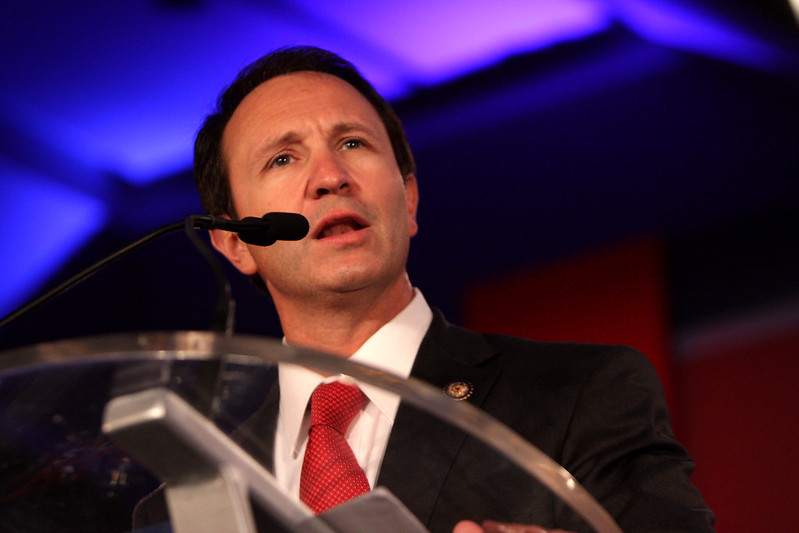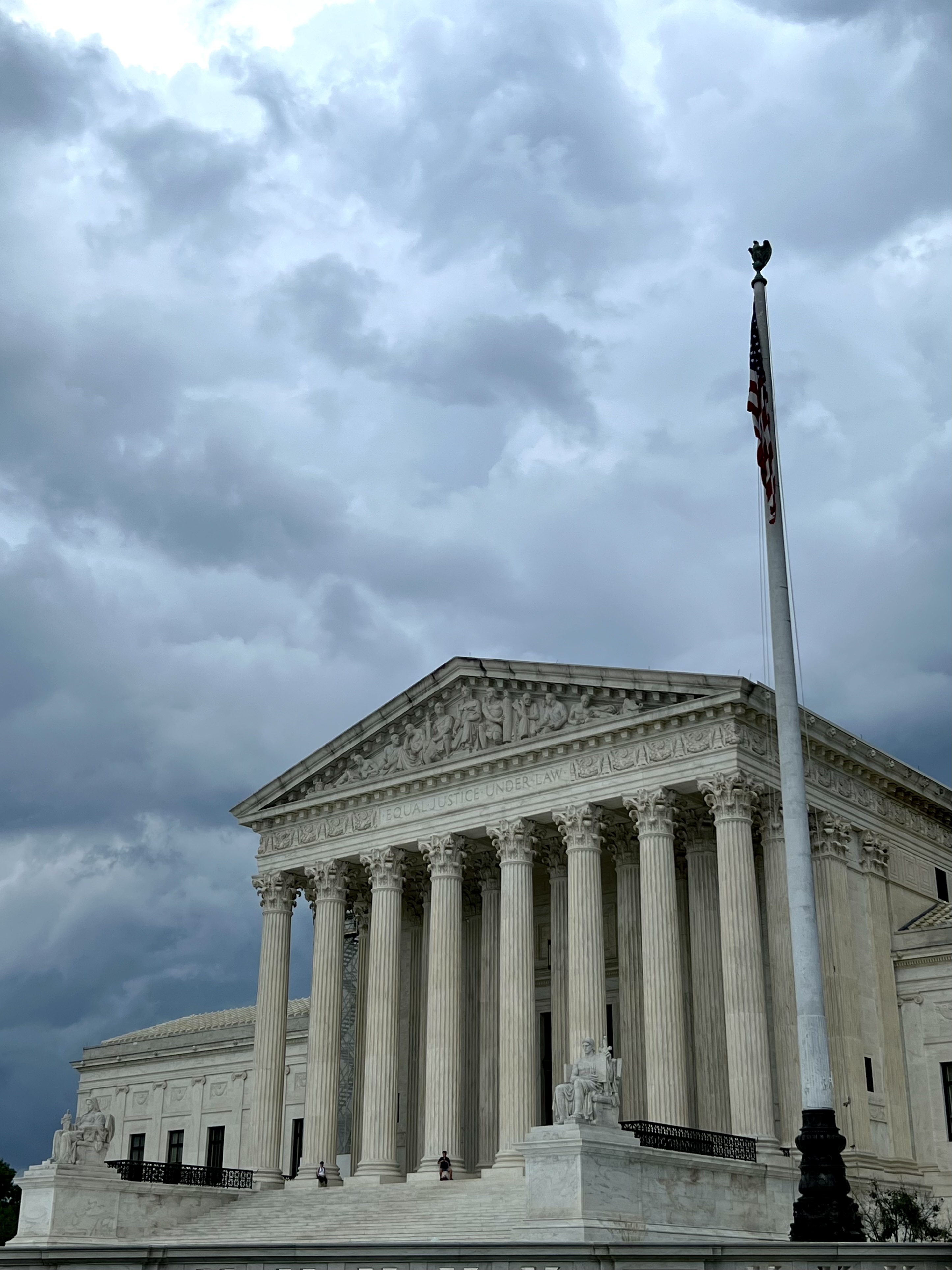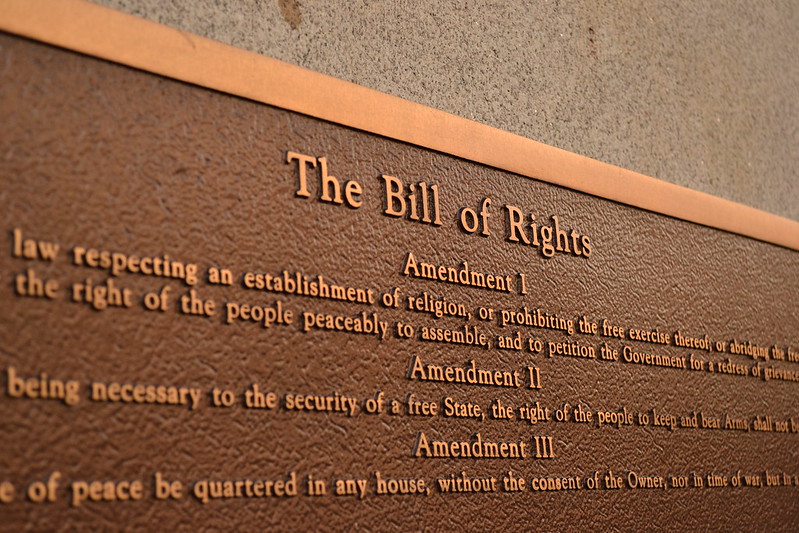Louisiana’s legislation was likely designed to leverage the potential consequences of a legal challenge that the bill’s proponents would have been foolish not to expect.
A group of Louisiana families is contesting a recently-passed law requiring that copies of the Ten Commandments be displayed in public-school classrooms throughout the state. The lawsuit names dozens of plaintiffs: parents, priests, and ministers, all of whom believe that House Bill 71 poses a fundamental threat to their right to worship free from interference.
The families are receiving legal counsel and support from the American Civil Liberties Union Foundation, as well as Americans United for Separation of Church and State, the Freedom From Religion Foundation, and the private New York-based law firm Simpson, Thatcher & Bartlett.
Rev. Jeff Simms, a Presbyterian pastor and named plaintiff, suggested that the state’s decision to mandate the display of the Ten Commandments sends an implicit message that—even among Christians—the beliefs of certain sects and denominations better and more accurately reflect scripture than others.

“This display sends a message to my children and other students that people of some religious denominations are superior to others,” Simms said. “This is religious favoritism.”
The legislation underpinning the new rule—signed into law by Louisiana Gov. Jeff Landry late last week—makes Commandment displays mandatory in all public K-12 classrooms, as well as any colleges or universities receiving funding from the state.
Since its proposal and since its passage, critics of the legislation have characterized the law as a blatant violation of the First Amendment, its Establishment Clause, and the separation of church and state.
Although neither the Establishment Clause nor its closely-related counterpart, the Free Exercise Clause, explicitly direct a “separation of church and state,” academic analyses—as well as decades of legal precedent—have largely entrenched the principle. In 1980, for instance, the Supreme Court held that a conceptually identical Kentucky law was unconstitutional, with a majority of justices finding that the Kentucky act served no “no secular legislative purpose” and thereby effected an appearance of state-sanctioned religious practice.
Attorneys for the plaintiff families make similar arguments in their claim, while also emphasizing the overtly Christian remarks made by the bill’s Republican sponsor.
“The state’s man interest in passing H.B. 71 was to impose religious beliefs on public-school children, regardless of the harm to students and families,” the lawsuit claims. “The law’s primary sponsor and author, Representative Dodie Horton, proclaimed during debate over the bill that it ‘seeks to have a display of God’s law in the classroom for children to see what He says is right and what He says is wrong.’”

The families behind the complaint have shared hopes that their lawsuit could lead Louisiana to abandon—by choice, or by writ—a policy they allege is unquestionably exclusionary.
“Politicians have absolutely no business forcing their religious beliefs on my kids or any [other] kids, or attempting to indoctrinate them with what they think is the right version of a particular piece of religious text,” said Joshua Herlands, a plaintiff who is Jewish and whose two children attend New Orleans-area public schools.
But Louisiana Gov. Jeff Landry and state Attorney General Elizabeth Murrill have reaffirmed their confidence in the law’s constitutionality—and have pledged to defend it from its detractors.
“It seems the ACLU only selectively cares about the First Amendment,” Murrill said in a statement. “It doesn’t care when the Biden administration censors speech or arrests pro-life protesters, but apparently it will fight to prevent posters that discuss our own legal history.”
In the not-so-distant past, these arguments would have seemed likely to end with a decision preventing the state from enforcing its new Commandment requirements. However, different courts have not always agreed on the extent or limits of the separation between church and state. And today’s Court—with a conservative chief justice, three Trump appointees, and outspoken originalist Clarence Thomas—may well treat Louisiana’s arguments with less skepticism than its predecessors.
Thomas, in particular, has expressed few reservations in attacking the foundations of separation doctrine, which he believes predicated upon a gross misinterpretation of the Founders’ original intent. For Thomas, the Establishment Clause is but “a federalism provision” prohibiting Congress from directing the religious dictate of individual states—not a bulwark protecting individual people from the dictatorship of a state’s preferred religious practice.
Louisiana’s legislation, then, could easily have been designed to leverage the potential consequences of a legal challenge that the bill’s sponsor and proponents would have been foolish not to expect.
Because, if the district court rules against the plaintiff families—and attempts to appeal fall flat—then the Commandments still stand. And, if the case makes its way to Washington, its outcome could be determined by sympathetic justices of a Court that has shown itself very willing to reconsider and rebuke longstanding precedent.


Join the conversation!